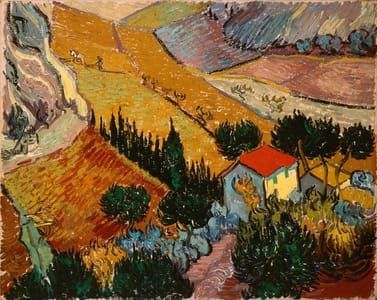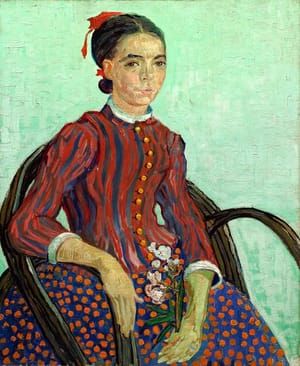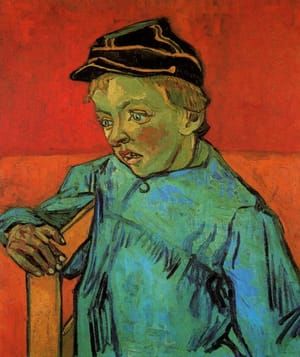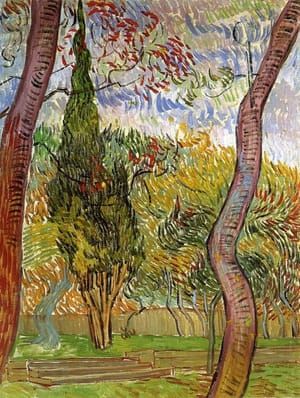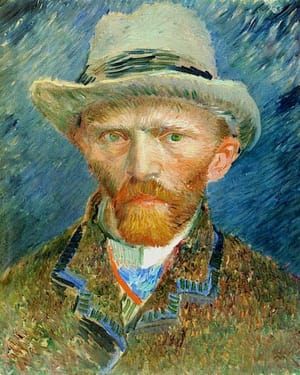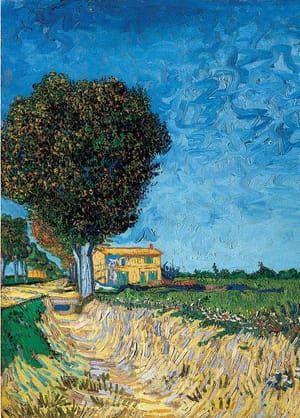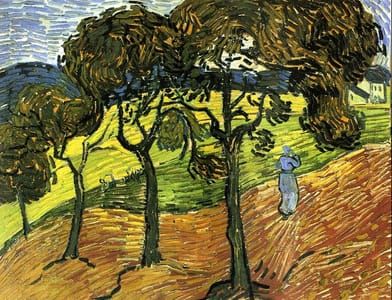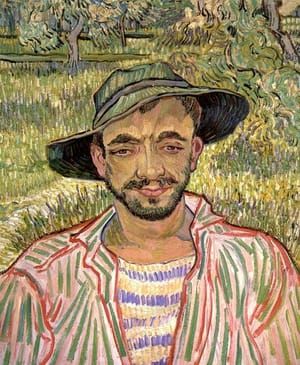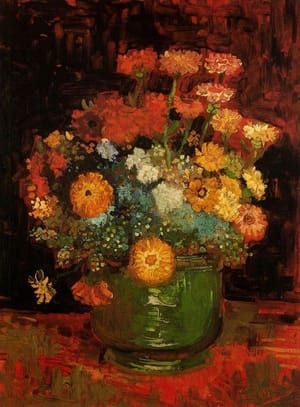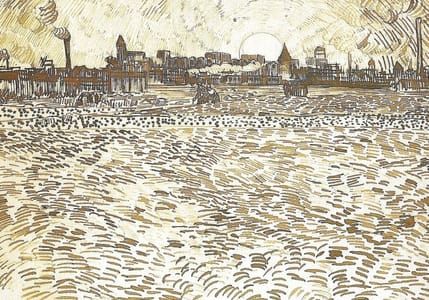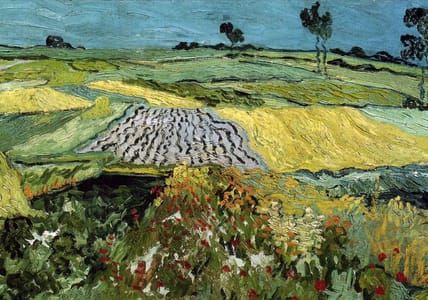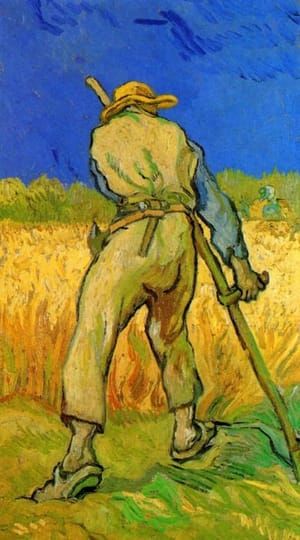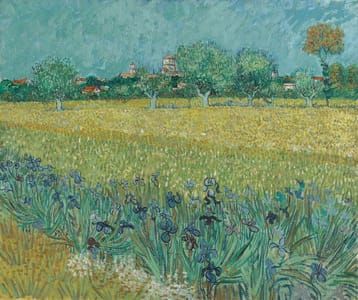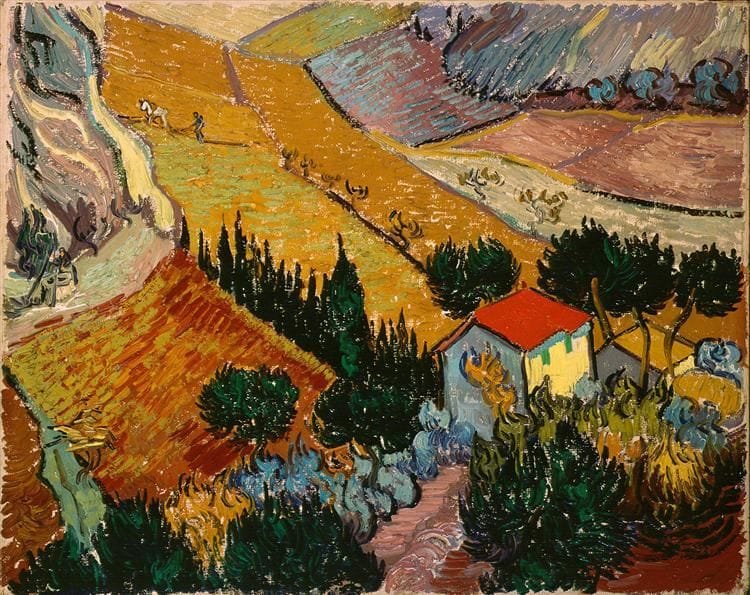

Valley Seen from Above, 1889
Vincent van Gogh
This landscape is unusual in its elevated, almost bird's-eye point of view. Such an angle can be seen as an attempt to look at the world in the Japanese way, natural for an artist obsessed with Japan. However, we cannot speak of serious influence here: Van Gogh's view was individual and came from his own impressions. The dynamism distinguishing this canvas is alien to Far Eastern landscapes. The painting has an enormous internal energy. The crossing diagonals forming the borders of the fields and the ploughed furrows, the contours of the roofs, the row of cypresses - such vectors strain the composition, but not so much as to disturb the unity of the whole. It is a study from nature. The coloring of the painting and the action of the figures show us that it was executed in autumn, a time when Van Gogh worked not only on the hospital grounds, but outside them as well. (https://www.wikiart.org/en/vincent-van-gogh/landscape-with-house-and-ploughman-1889)
Uploaded on Aug 16, 2015 by Suzan Hamer
Vincent van Gogh
artistArthur
Wait what?
